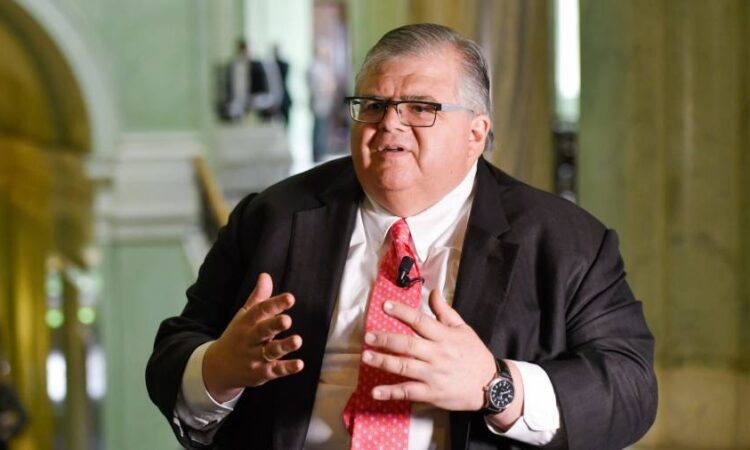
Financial watchdogs must “significantly” increase their budgets in the wake of recent banking crises, said the head of the umbrella body for central banks, arguing that more intensive day-to-day oversight was critical to preventing failures.
Global policymakers are weighing rule changes to better insulate banks from risks such as changing interest rates and a swifter flight of deposits, two factors that fuelled the biggest spate of collapses since the global financial crisis of 2007-08. Among the most high-profile failures, Silicon Valley Bank was shut down by the Federal Deposit Insurance Corporation in early March, while Credit Suisse was forcibly sold to Swiss rival UBS a week later.
Agustín Carstens, head of the Bank for International Settlements, said that while there was a case for making regulatory “adjustments”, the approach had its limitations because “there is simply no reasonable level of minimum capital and liquidity that can make a bank viable if it has an unsustainable business model or poor governance”.
“The main cause of recent bank crises was the failure of directors and senior managers to fulfil their responsibilities,” he told the European Banking Federation’s annual conference in Brussels on Thursday. “Business models were poor, risk management procedures woefully inadequate and governance lacking.”
Carstens, whose institution has responsibility for global financial stability and hosts the Basel Committee on Banking Supervision, said those issues “existed well before depositors ran and investors lost confidence” and that many of them should have been “identified and remedied ahead of time”.
“Banking supervision needs to up its game,” he said, arguing that spending must rise “significantly” to help supervisors ensure banks were better run and could cope with the impact of changing interest rates or advances in technology that enable faster bank runs.
Increased spending on regulation could be funded by a “range” of options, including higher contributions from banks. “Some will no doubt complain,” he said. “But this would be money well spent. Financial crises give rise to massive social and financial costs. By reducing their likelihood, investments in a more effective supervisory framework will certainly pay off.”
Carstens did not specify which regions should spend more. Most of 2023’s failures were in midsized US lenders such as Signature Bank and First Republic. The Federal Reserve said supervision of the California-based SVB lacked “sufficient force and urgency” but its implosion was primarily caused by a relaxation of rules during Donald Trump’s presidency, including a change that allowed midsized banks not to set any capital aside for unrealised losses in their securities portfolios.
A recent report by Oliver Wyman found that average supervisory fees paid by US banks are already running at twice the level of fees in the EU, though smaller banks in the European bloc face higher supervisory costs than in the US. An executive at one global bank said large jurisdictions spent substantial amounts on supervision, citing the $2.4bn operational budget of the FDIC. “The question is, are they [regulators] spending money in the right way,” he added.
Carstens called on supervisors to “find and develop sufficient expertise in areas like cyber security, data analytics and artificial intelligence” so they can keep pace with the “far reaching impact of technological disruption” and improve their efficiency.
“With sufficient resources and the aid of technology, supervisors will be able to identify more vulnerabilities at an early stage and to act on them before problems become too large and complex to handle,” he said, adding that “such investments will certainly reduce” the likelihood of bank failures and their ability to destabilise the financial system.





